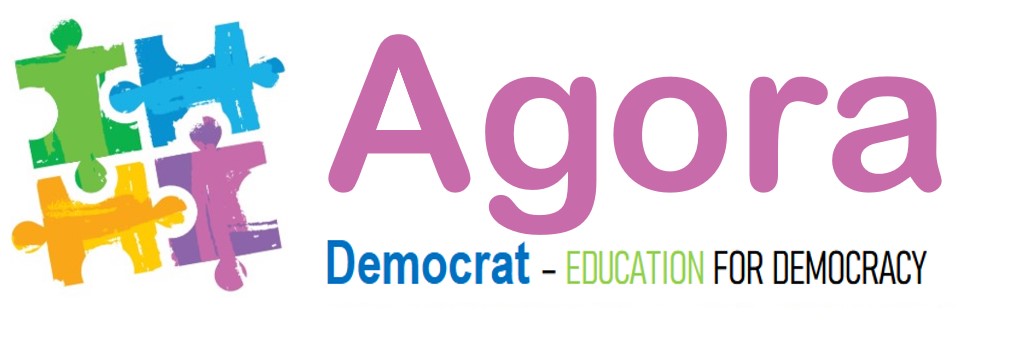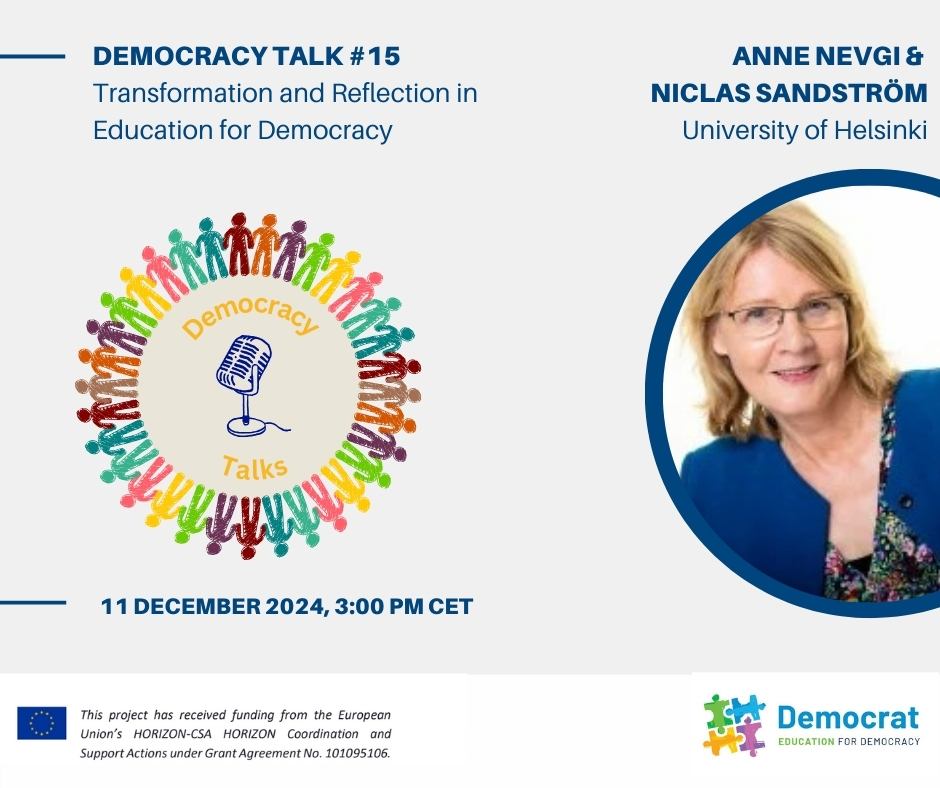On 11 December 2024, we hosted Democracy Talk 15, featuring Anne Nevgi and Niclas Sandström from the University of Helsinki. The session, titled “Transformation and Reflection in Education for Democracy,” explored how critical reflection and transformative learning can cultivate democratic competencies in both formal and non-formal educational settings.
Key Themes Explored
Key Competencies for Democratic Participation
Anne Nevgi highlighted the importance of developing key competencies through education that are essential for democratic engagement:
- Critical Reflection: Encouraging individuals to question their own biases, values, and assumptions to foster independent thinking.
- Active Citizenship: Promoting civic responsibility and participation beyond voting, including community involvement and advocacy.
- Social and Emotional Intelligence: Cultivating empathy, self-awareness, and emotional regulation to enhance constructive dialogue and mutual respect.
- Metacognitive Skills: Fostering the ability to think about one’s own thinking, enabling continuous self-assessment and growth.
Standardised Outreach Strategies for Engaging Vulnerable Communities
The speakers addressed effective outreach strategies to engage individuals from vulnerable backgrounds:
- Participatory Learning Environments: Creating spaces where diverse viewpoints are valued, and mutual respect is a core practice.
- Community-Based Approaches: Establishing local platforms for youth participation in decision-making processes.
- Social and Emotional Learning (SEL): Integrating SEL into teacher training programmes to support educators in fostering inclusive and reflective classroom environments.
- Digital Literacy and Critical Media Skills: Equipping young people with the tools to navigate social media responsibly and recognise the impact of digital communication on democratic discourse.
Questions for Reflection
- How can education systems integrate critical reflection as a core component of democratic learning?
- What strategies can schools adopt to foster active citizenship from an early age?
- How can educators balance freedom of speech with the need to prevent hate speech in democratic societies?
- In what ways can social and emotional intelligence be systematically incorporated into educational curricula to support democratic competencies?
Upcoming Events
Join us for the next Democracy Talk on 15 January 2025, featuring Sonia Bousu from the University of Birmingham. Sonia will present the Inspire Project, focusing on co-designing more inclusive and embedded participation frameworks. Stay tuned for this insightful session!
Tune in LIVE on YouTube via this link: https://www.youtube.com/@democrathorizon


Leave a Reply